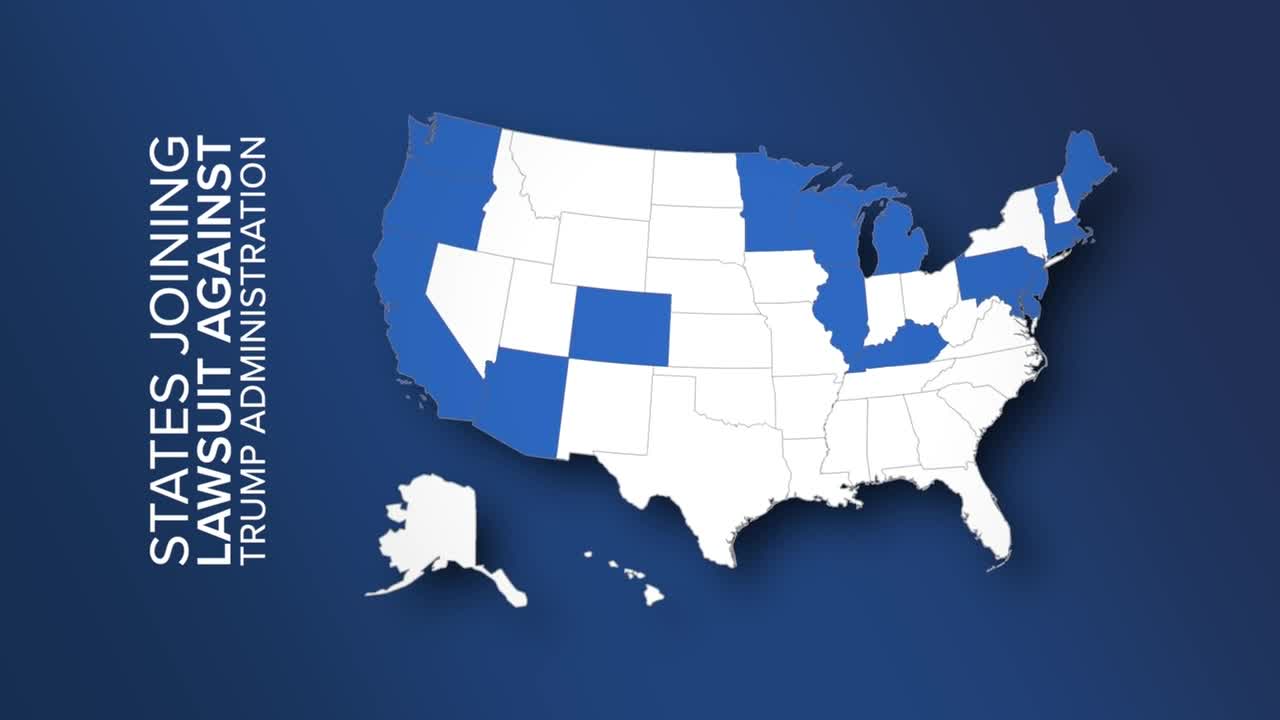DENVER — As Democratic-led states file another lawsuit against the Trump administration for withholding funds to a permanent housing program, some political analysts predict the back-and-forth between blue states and President Trump could lead to a soft secession.
“Our political system allows for states to have some power, and, of course, set aside from the federal power, and [a] soft secession is really a way for states to act in noncompliance with federal rules, using the power that they have, but also to coordinate across several states on some policy issues that they may disagree with with the federal government,” Dr. Robert Preuhs, Metropolitan State University of Denver political science chair told Denver7 Tuesday. “So, it's not a full blown secession, leaving the country, but it is a way for states to follow and pursue policies that differ from federal policies."
One example of a soft secession is states withholding federal tax dollars from the Trump administration — something Preuhs said would be highly unlikely for states to do.
“The odds of withholding taxes and making that stick are pretty low. I think that would have to go through the courts. And the courts, of course, would likely say that the federal government has the power to pull taxes out," Preuhs said. "That said, other ways of dealing with policies at the federal level that states don't like are available coalitions. For instance, we've seen them in California, Oregon, Washington, Hawaii, putting together a public health entity that provides different advice than our federal health policy."

The Governors Health Public Alliance, which Colorado is a part of, is an organization made up of Democratic-led states that collaborate on public health policy.
“I think [a] soft secession is interesting, although there's a lot of constitutional hurdles to some of the more extreme proposals out there," Preuhs said. "Things like trade or economic alliances among blue states, those types of elements directly contradict the Commerce Clause and other constitutional provisions that restrict states from imposing taxes on other states."
Preuhs said states creating their own economies would be unlikely to happen without a hard secession, which is what led to the Civil War.





Denver7 is committed to making a difference in our community by standing up for what's right, listening, lending a helping hand and following through on promises. See that work in action, in the videos above.






